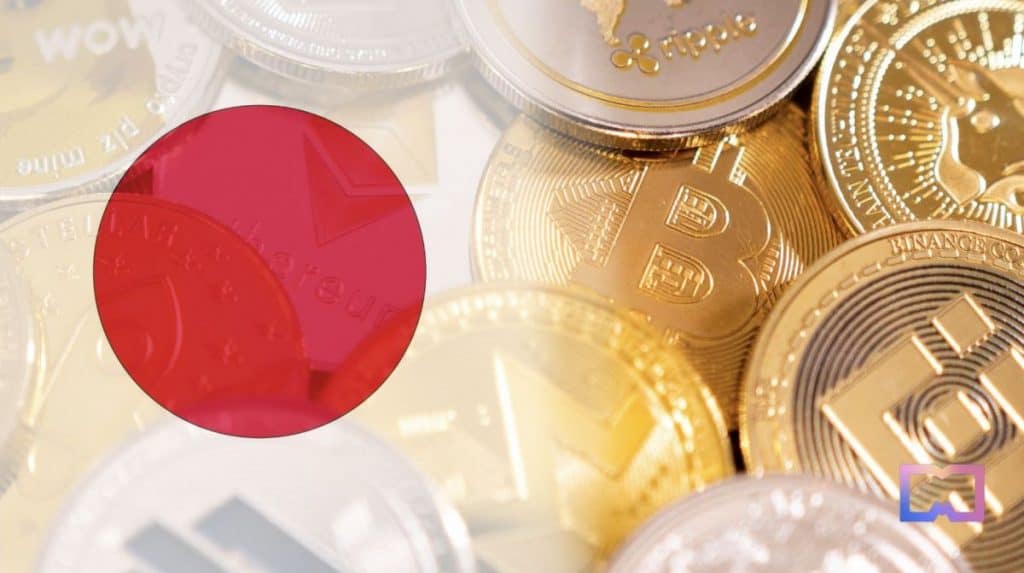Circle Contemplates Stablecoin Issuance under Japan’s New Regulations


In Brief
Circle is planning to expand its business by considering issuing a stablecoin in Japan once the country’s regulatory framework comes into effect on June 1.
Circle, the well-known stablecoin issuer, is exploring the possibility of launching a stablecoin in Japan. This follows the implementation of new regulations in the country, effective from June 1. Japan, as one of the first nations to introduce stablecoin-specific legislation, presents a fresh and potentially vast market, especially for cross-border trade, foreign currency trading, and global commerce.

Jeremy Allaire, Circle’s CEO, revealed these plans during an interview. Allaire’s recent visit to Japan has sparked his interest in the potential collaboration and growth in this space.
The Japanese parliament’s approval of stablecoin regulations marks a significant step in providing security for investors. This move makes Japan one of the few major economies to enact such legislation. The newly revised “Payment Services Law” recognizes fiat-backed stables as “electronic payment methods” and approves their issuance.
Defining Stablecoins
The new law provides a clear definition of stablecoins. These digital currencies must be pegged to the yen or another legal tender, guaranteeing holders the right to redeem them at face value. At present, only licensed banks, registered remittance agents, and trust companies can issue stablecoins. The law doesn’t yet address asset- or algorithm-backed stables, and Japanese exchanges do not currently list stablecoins.
Japan has recently relaxed some of its crypto rules, such as token listing and taxation. However, it’s generally seen as a country with stringent regulations, suggesting that any future stable issuance would need to strictly adhere to the new regulatory framework.

Expert Perspective
Japan’s recent legislation governing stablecoins is an essential step toward more robust digital asset regulation. It’s clear that Japan is moving decisively to secure a solid framework for stables and other digital currencies. The fact that Circle is considering issuing a stablecoin in Japan under these stringent rules signals the country’s potential as a significant market in the crypto space.
While Japan’s regulations are strict, they offer clarity and legal protection, which could spur increased activity in the country’s crypto sector. This framework may well attract other crypto companies besides Circle, seeking well-regulated markets to operate within.
Circle’s proposed move could also stimulate more cross-border trade and global commerce activities, leveraging the advantages of stablecoins in reducing costs, enhancing speed, and providing more transparency.
However, there are some potential hurdles to consider. The new regulations only permit licensed banks, registered remittance agents, and trust companies to issue stables, meaning Circle will likely need to partner with one of these entities.
Additionally, while the laws surrounding stables have been clarified, regulations regarding asset- or algorithm-backed stablecoins remain undefined, posing potential future challenges. Despite these obstacles, Circle’s interest in Japan signals a potential turning point for crypto in the country.
As the situation unfolds, it will be crucial to watch how Japan’s regulatory landscape evolves and how it influences the decisions of Circle and other key players in the crypto space.
- Jeremy Allaire has been closely monitoring Hong Kong’s regulatory changes to see how they will affect the digital asset market and the demand for US dollar stablecoins in Asia.
Read more related articles:
- Issues around NFTs: Legal Risks, Taxation Aspects, Regulation
- Japan’s Privacy Watchdog Issues Warning to OpenAI
- European Lawmakers Approve Strict Artificial Intelligence Regulations with AI Act
Disclaimer
In line with the Trust Project guidelines, please note that the information provided on this page is not intended to be and should not be interpreted as legal, tax, investment, financial, or any other form of advice. It is important to only invest what you can afford to lose and to seek independent financial advice if you have any doubts. For further information, we suggest referring to the terms and conditions as well as the help and support pages provided by the issuer or advertiser. MetaversePost is committed to accurate, unbiased reporting, but market conditions are subject to change without notice.
About The Author
Nik is an accomplished analyst and writer at Metaverse Post, specializing in delivering cutting-edge insights into the fast-paced world of technology, with a particular emphasis on AI/ML, XR, VR, on-chain analytics, and blockchain development. His articles engage and inform a diverse audience, helping them stay ahead of the technological curve. Possessing a Master's degree in Economics and Management, Nik has a solid grasp of the nuances of the business world and its intersection with emergent technologies.
More articles

Nik is an accomplished analyst and writer at Metaverse Post, specializing in delivering cutting-edge insights into the fast-paced world of technology, with a particular emphasis on AI/ML, XR, VR, on-chain analytics, and blockchain development. His articles engage and inform a diverse audience, helping them stay ahead of the technological curve. Possessing a Master's degree in Economics and Management, Nik has a solid grasp of the nuances of the business world and its intersection with emergent technologies.






















































